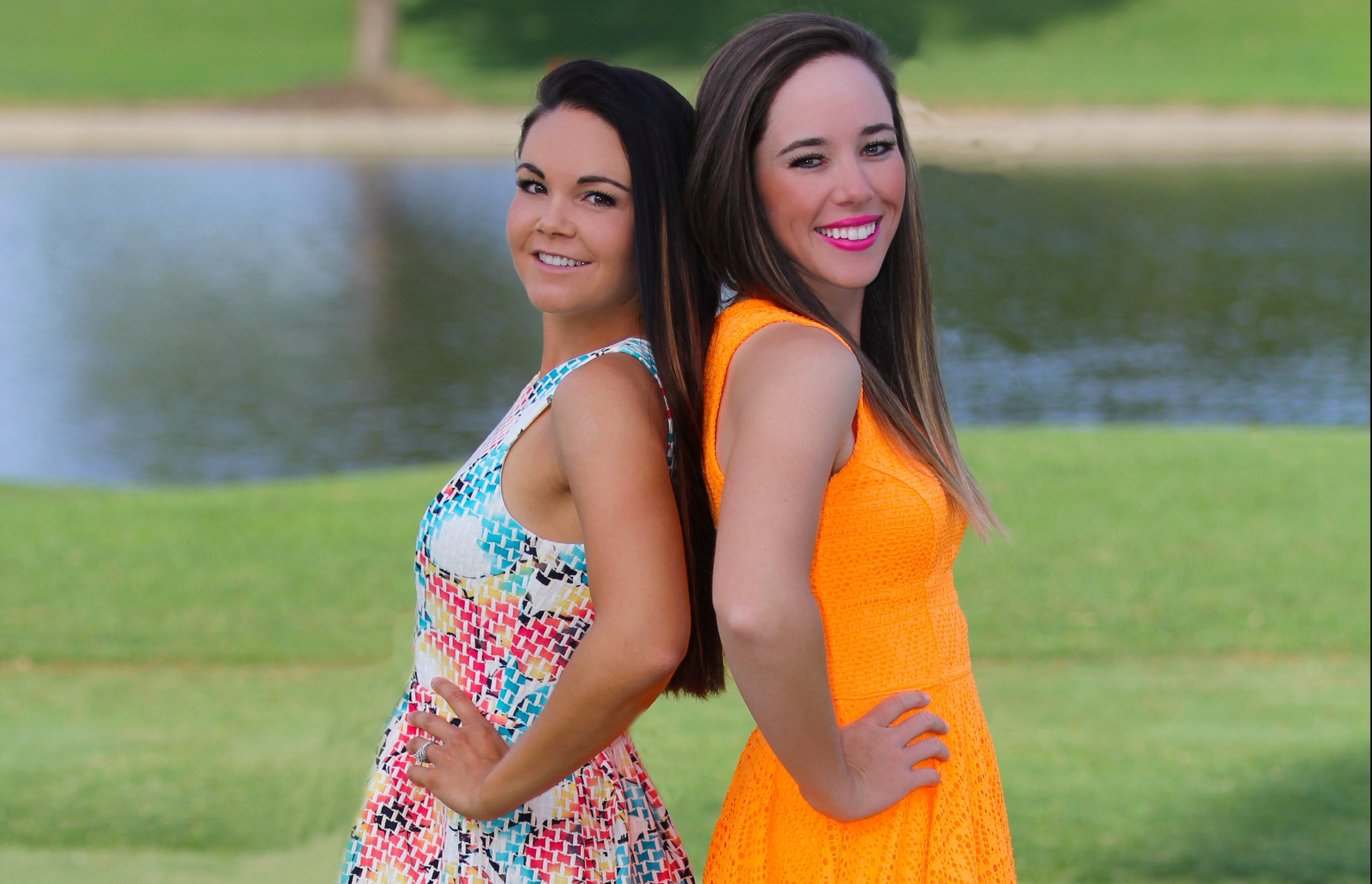McKenzie Lyng and Amanda Robertson first met on the Cactus Tour, an Arizona-based mini tour that gives winner’s checks of up to $4,000. As their friendship blossomed, they started traveling together on the Canadian Tour and in state opens, spending as long as nine weeks in a row on the road together chasing an LPGA dream.
Along the way, however, something else happened: The pair started a business together.
Lyng and Robertson no longer play golf professionally but their company, Backswing Golf Events, funds the careers of dozens of players who still do.
The idea for the company came from a Las Vegas pro-am attended by 25 young female pros – most of whom, like Amanda, were former cast members on Golf Channel’s Big Break series.
Being paid to eat dinner and play golf with clients? The two friends got the idea to take that concept nationally and put together their first event in 2015.
They started by searching online for existing events and cold-calling to ask if they’d like to hire a group of touring professionals to help raise more money for charity – beat the pro closest-to-the-pin contests, long drive pro, roaming pros who play 1-3 holes with each group and then move on.

McKenzie Lyng and Amanda Robertson.
“It was just Amanda and I and two other people,” said Lyng, “and then it kind of blew up.”
In 2016, the Scottsdale-based company did 62 events. The number increased slowly to 85 the following year, but by 2019 they’d done 450 events in one year. Before the COVID-19 pandemic struck, they were projected to reach the 700 mark.
Still, they managed to do 300 events last year.
“It was kind of a blessing for our company,” said Lyng of the 2020 break. “We were in really deep with where we were at and we were exploding really fast.”
As the mother of two young kids, Lyng felt like she wasn’t giving enough to either role – CEO or mom. The pandemic taught her to ask for help.
“It almost forced us to kind of stop for a second,” said Robertson, the company’s COO/CFO. “We had three to four months where we could actually work on our business development and prepare for a really big fall and big 2021.

Lyng with daughter Peyton, husband Jonathan and son Brayden. (courtesy photo)
There are three sales reps and 75 women on their roster of playing professionals. They can work as much or as little as they want. Pros make anywhere from $400 to $700 at a local event and up to $1,300 at corporate outings on the road on top of their expenses.
Backswing does five Southwest Airline events per year, which are two-day events with 288 players. They’ve worked with the American Cancer Society, the National Kidney Foundation, hospitals and construction companies.
Madison Frerking started working with Backswing right out of college and worked 20 events in two months earlier this year.
“They don’t have to question if they’re going to play the WAPT,” said Lyng, referring to the Women’s All Pro Tour. “For me, it was like, ‘Well, I don’t have another $600 bucks lying around, so I’ve got to go find a sponsor or work at the restaurant.”
The job keeps players on the golf course with a club in their hand, engaging with clients as they’d do every week on the LPGA any given Wednesday.
Backswing jobs have funded Q-School entry fees and taken off some of the pressure many pros face out of college with no status and no financial backing. The flexibility makes it easy to work around tournament schedules, too.

Amanda Robertson (left) and McKenzie Lyng of Backswing Golf Events (courtesy photo)
Both Lyng and Robertson picked up the game in high school, making the switch from softball to golf at age 16. Lyng walked on at Kent State and eventually earned a scholarship. Robertson didn’t play golf in college, graduating with a degree in psychology from Pepperdine in 2011. She instead got really hooked on the game while competing on the Golf Channel Amateur Tour, where she was the only female on the national winning team in 2008.
They could’ve never imagined that they’d one day run a golf company averaging 50-plus events a month. And it’s not just the pros who are benefitting financially, of course. It’s the charities, too.
“I don’t think we realized how much of an impact we were making at these tournaments,” said Lyng. “I’ve had people crying because we raised so much money.”

